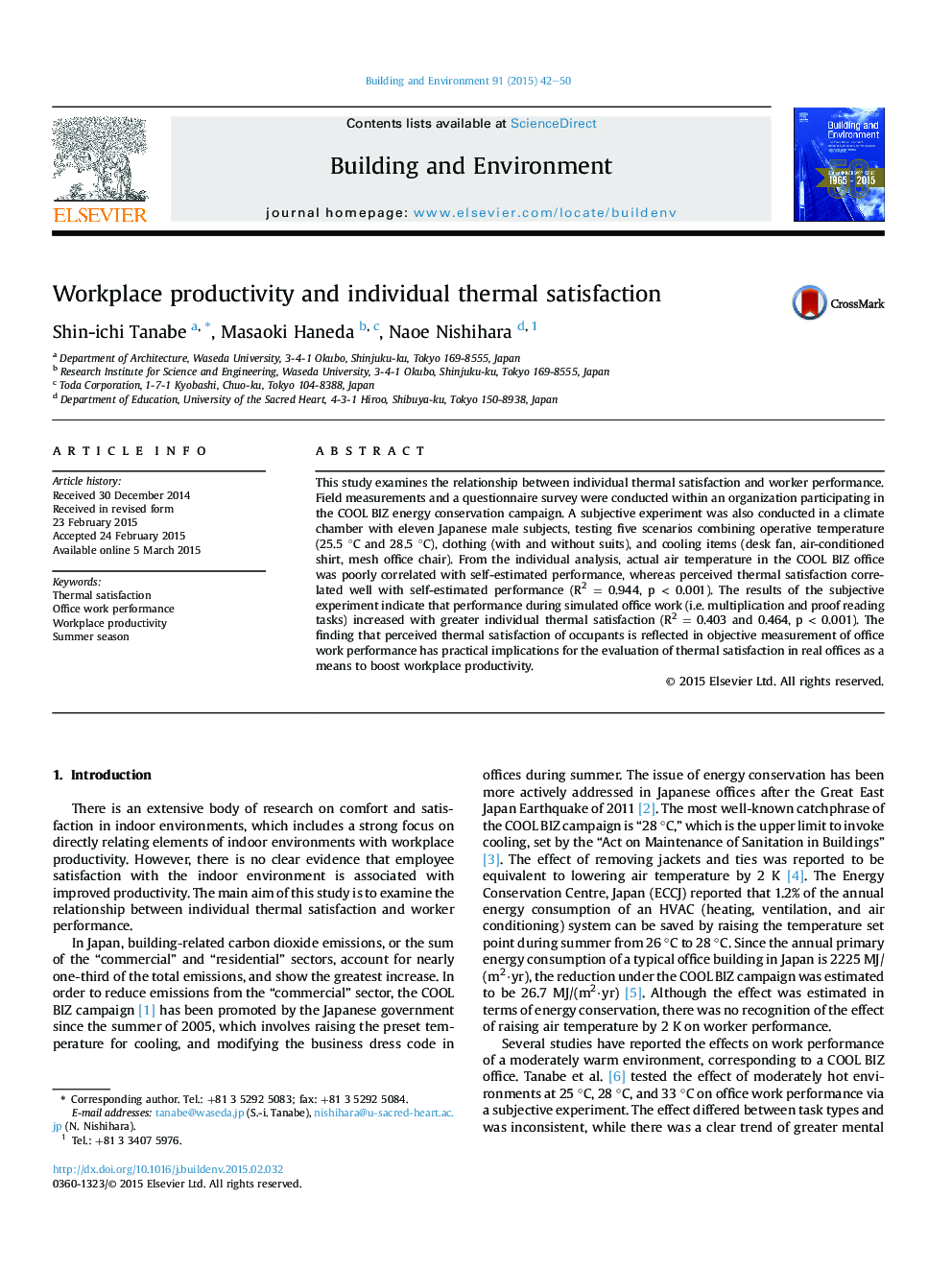| Article ID | Journal | Published Year | Pages | File Type |
|---|---|---|---|---|
| 247831 | Building and Environment | 2015 | 9 Pages |
•Surrounding air temperature correlates poorly with self-estimated performance.•Perceived thermal satisfaction correlates well with self-estimated performance.•Performance of office work increased with greater individual thermal satisfaction.•Personal control of thermal environment improves individual preferences.•Practical implications for thermal satisfaction in boosting workplace productivity.
This study examines the relationship between individual thermal satisfaction and worker performance. Field measurements and a questionnaire survey were conducted within an organization participating in the COOL BIZ energy conservation campaign. A subjective experiment was also conducted in a climate chamber with eleven Japanese male subjects, testing five scenarios combining operative temperature (25.5 °C and 28.5 °C), clothing (with and without suits), and cooling items (desk fan, air-conditioned shirt, mesh office chair). From the individual analysis, actual air temperature in the COOL BIZ office was poorly correlated with self-estimated performance, whereas perceived thermal satisfaction correlated well with self-estimated performance (R2 = 0.944, p < 0.001). The results of the subjective experiment indicate that performance during simulated office work (i.e. multiplication and proof reading tasks) increased with greater individual thermal satisfaction (R2 = 0.403 and 0.464, p < 0.001). The finding that perceived thermal satisfaction of occupants is reflected in objective measurement of office work performance has practical implications for the evaluation of thermal satisfaction in real offices as a means to boost workplace productivity.
